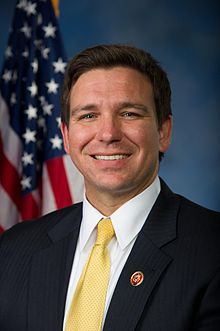
Throwing a wrench into the Saint Patrick’s Day plans of pubs around the state, Florida Gov. Ron DeSantis on Tuesday issued a 30-day order shutting down bars and nightclubs and capping restaurants at half-capacity.
Halpatter Brewing Company, one of the local businesses that had an event planned for the occasion, opted to stay open despite the order.
“As most of you have heard by now, Governor DeSantis has mandated that all bars and nightclubs be closed for the next 30 days. After much discussion, the management at Halpatter Brewing has chosen to continue to operate under our existing restaurant license in an effort to maintain the livelihood of our staff,” the business posted on social media. “That said, we will be altering our operations to ensure the safety of our staff and patrons and to comply with the most recent rules. Until further notice, all events (bingo, trivia, etc) and live music are cancelled. In addition, attendance in the tap room will be limited to 50 or fewer. If you feel at all unsafe in visiting us, we are also ramping up production of cans for to-go pick up. Growlers will also remain available and will be filled using our standard stringent three-stage cleaning and sanitation process. Please rest assured that we have not taken this decision lightly and are doing our best to mitigate any health risk while at the same time serving our staff and patrons to the best of our abilities. Stay safe, have a beer, and we hope to see everyone soon!”
DeSantis, who has allowed local officials to take the lead on many restrictions stemming from the deadly virus, did not order restaurants to shut down and did not close the state’s beaches.
Instead, DeSantis said he was going to issue executive orders outlining minimum requirements for restaurants and beaches, based on recommendations from the federal Centers for Disease Control and Prevention.
Restaurants, the governor said, will be required to screen their staff members before allowing them to work. And while DeSantis is encouraging people to order take-out meals, restaurants will be allowed to offer dining options so long as they operate at 50 percent capacity where tables can be spread at least six feet apart.
“This is the floor for Florida for the foreseeable future,” DeSantis said, adding he expected municipalities such as Miami to pass stricter regulations. “We support the efforts that the locals are doing. This is a virus that is affecting the whole state, but I think it affects different communities differently. The response may not always be the same on every little thing. We have a number of counties that have not had a single case. And so I feel this makes the most sense.”
Florida Restaurant and Lodging Association President and CEO Carol Dover in a statement thanked DeSantis for what she called a “thoughtful and measured approach” as cases of the virus spread across the state and country.
“He has shown great support for Florida’s restaurants. Permitting them to remain open will allow local businesses to continue to operate and provide employment while also providing an additional resource for consumer demand,” she said.
The news came as the number of COVID-19 cases in Florida — and the death toll —continued to rise.
DeSantis said a 77-year old resident of a Broward County assisted living facility died Monday, and the Sun Sentinel newspaper Tuesday afternoon reported the death of another resident of the facility.
Because the highly contagious virus is most deadly to seniors, the state banned visitation at long-term care facilities in Broward County last week. As the virus continued to spread, the ban was extended statewide.
“There’s an investigation under way, the Department of Health sent a strike team last evening upon becoming aware of the individual’s positive test result and then worked through the night to check on every other member of the facilities,” DeSantis said. “So all individuals at the facilities are being isolated and evaluated.”
In all, Florida had 192 cases of COVID-19 as of Tuesday morning. That figure includes four University of Florida students.
The state last week ordered universities to shift to online classes and tell students to stay away from campuses for at least two weeks. But the moves Tuesday went further, with university-system officials saying all universities will use online classes for the rest of the spring semester.
The university system’s Board of Governors also said schools should “consider using remote instruction for the early summer terms,” although it is not required.
In addition, the 12 state universities will cancel May graduation ceremonies, according to a statement released by the board.
“Instead, each university is directed to develop an alternate schedule or method of delivery,” the statement said.
DeSantis said the shift to online classes for the rest of the spring is meant to push students to leave campus and go home.
“One of the things we’ve noticed is the universities being with the spring break, a lot of students have just been congregating at the universities and going out and doing things there, and that is not something that we want,” the governor told reporters.
DeSantis said he called Board of Governors Chairman Syd Kitson on Tuesday morning before deciding to recommend that all universities move to online classes.
“We think that will be safer for everybody, and we think the universities are equipped to handle the remote learning,” the governor said.
The move also came after the four University of Florida students tested positive for the coronavirus. A few students traveled to “hot spots” in the U.S. and one student had studied abroad, DeSantis said.
UF officials did not immediately respond to requests for comment on the students’ positive diagnoses.
The News Service of Florida contributed to this story.
